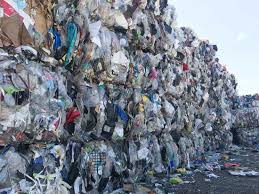Plastic recycling is the central process in combating environmental toxins and conserving sources. However, making sure its effectiveness requires productive participation and adherence to a particular recommendations. Here are some tips for efficient plastic recycling:
1. Determine What to Recycle: Get to know the types of plastics approved for recycling in the area. Concentrate on recycling generally approved plastics like Family pet (#1) and HDPE (#2), that have higher market require and they are widely reused.
2. Neat and Dried up: Prior to recycling plastic containers, be sure to clean them thoroughly to take out any foods deposits or impurities. Free of moisture the storage containers to stop fungus growth and maintain the caliber of recyclable materials.
3. Remove Hats and Lids: Several recycling plans require caps and lids to get removed from plastic bottles and boxes prior to recycling. Check out local rules to make sure compliance with this particular prerequisite, as caps made out of distinct plastics might need to be reused independently.
4. Avoid Pollution: Contaminants helps to reduce the standard of recycled plastics and disrupt the recycling process. Stay away from mixing recyclable plastics with low-recyclable supplies, and refrain from setting such things as plastic hand bags or Styrofoam in recycling containers.
5. Recycle Appropriately: Position recyclable plastics in chosen recycling receptacles or storage units provided by your municipality. Adhere to recommendations for curbside recycling or get plastics to chosen decline-off spots to guarantee appropriate digesting.
6. Decrease Plastic Use: As well as plastics recycling, make an effort to lessen your overall plastic intake. Select reusable alternate options, such as stainless h2o containers or cloth grocery hand bags, to lower the generation of plastic waste materials.
7. Assistance Recycling Projects: Recommend for improved recycling facilities and help businesses that use recycled supplies in their goods. Promote local government bodies to purchase recycling programs and raise understanding about the importance of plastic recycling.
8. Stay Knowledgeable: Continue to be updated on improvements in plastic recycling technology and best procedures. Become knowledgeable and others regarding the environment affect of plastic toxins and the significance of accountable squander administration.
By simply following these guidelines, you can bring about the strength of plastic recycling endeavours and assist minimize the ecological influence of plastic spend. Do not forget that every modest measures is important towards making a much more eco friendly long term.
